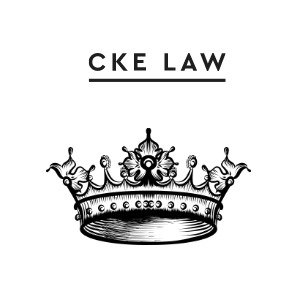Best International Trade Law Lawyers in Manchester
Share your needs with us, get contacted by law firms.
Free. Takes 2 min.
List of the best lawyers in Manchester, United Kingdom
About International Trade Law in Manchester, United Kingdom
Manchester is a pivotal hub for international trade in the United Kingdom, facilitated by its strategic location, vibrant economy, and historical ties to global commerce. International Trade Law encompasses various legal disciplines, focusing on the regulation and laws concerning trade between nations. In Manchester, businesses involved in importing, exporting, and trading must navigate complex legal frameworks which could involve contracts, tariffs, compliance with international treaties, and trade dispute resolution. Manchester's legal landscape provides a robust infrastructure of legal experts and firms specializing in this area, catering to both local and international clients.
Why You May Need a Lawyer
Legal assistance is often crucial in navigating International Trade Law due to its complexity and the significant impact of trade regulations on business operations. Common situations where legal help may be required include:
- Negotiating and drafting international sales contracts.
- Understanding and complying with import/export regulations.
- Resolving trade disputes or litigations with foreign entities.
- Addressing tariff classifications and customs valuation.
- Navigating international trade sanctions and embargoes.
- Ensuring compliance with international trade agreements such as GATT, WTO, or regional treaties.
- Managing intellectual property rights across borders.
- Advising on matters related to anti-dumping and countervailing duties.
Local Laws Overview
Manchester, being part of the United Kingdom, operates under UK trade regulations which are influenced by both domestic and international laws. Key aspects include:
- Trade and Cooperation Agreement (TCA): Governs the UK’s trade relationship with the EU post-Brexit, affecting tariffs and regulations.
- Customs Tariffs: An important consideration for imports and exports, which can vary based on the country of origin.
- Export Control Orders: Regulate the export of goods and technologies for reasons related to national security or international obligations.
- Sanctions and Embargoes: Businesses must comply with restrictions imposed by UK and international law on trading with specific countries or entities.
- Trade Remedies: Policies protecting against unfair trade practices like dumping and subsidies.
Frequently Asked Questions
What is the significance of International Trade Law?
International Trade Law is crucial for defining how countries and businesses conduct transactions over borders, ensuring that trade is fair, legal, and equitable.
Can I handle international trade without a lawyer?
While possible, it's often challenging to navigate the complex legal landscape without professional help, risking compliance issues and financial losses.
What are the risks of non-compliance with trade laws?
Non-compliance can lead to legal penalties, business disruptions, financial losses, and damage to reputation.
How do trade agreements impact my business?
Trade agreements can affect tariffs, market access, and regulatory compliance, influencing pricing, sourcing, and market entry strategies.
What should I consider when drafting international contracts?
Ensure clear terms on delivery, payment, dispute resolution, and compliance with applicable laws across jurisdictions.
What is a tariff classification?
It's the categorization of goods for import/export purposes, determining duties and regulations applied to them.
How can I resolve trade disputes?
Options include negotiation, mediation, arbitration, or litigation, with legal guidance recommended to choose the best approach.
What is the WTO, and why is it important?
The World Trade Organization (WTO) oversees global trade rules and dispute resolution, promoting a fair trade environment.
How do sanctions affect international trade?
Sanctions restrict or prohibit trade with certain countries or entities, often for political or security reasons, affecting market possibilities.
What is dumping, and why is it problematic?
Dumping occurs when a company exports a product at a price lower than its domestic market, posing a risk of damaging local industries.
Additional Resources
For further information, consider these resources:
- Department for International Trade (DIT): Provides guidance on trade and investment.
- British Chambers of Commerce: Offers support and resources for trade businesses.
- UK Export Finance (UKEF): Assists with financial backing and insurance for exporters.
- Manchester Law Society: Connects with legal professionals specializing in trade law.
- European Union’s Trade Helpdesk: For insights into trading with the EU post-Brexit.
Next Steps
If you require legal assistance in International Trade Law, consider the following:
- Identify the specific legal needs of your trade operations.
- Reach out to specialized international trade law firms or solicitors in Manchester.
- Prepare relevant documentation such as trade contracts, correspondences, and compliance reports.
- Schedule consultations to discuss your legal needs and the best strategies moving forward.
- Stay informed about changes in trade regulations that may impact your business.
Lawzana helps you find the best lawyers and law firms in Manchester through a curated and pre-screened list of qualified legal professionals. Our platform offers rankings and detailed profiles of attorneys and law firms, allowing you to compare based on practice areas, including International Trade Law, experience, and client feedback.
Each profile includes a description of the firm's areas of practice, client reviews, team members and partners, year of establishment, spoken languages, office locations, contact information, social media presence, and any published articles or resources. Most firms on our platform speak English and are experienced in both local and international legal matters.
Get a quote from top-rated law firms in Manchester, United Kingdom — quickly, securely, and without unnecessary hassle.
Disclaimer:
The information provided on this page is for general informational purposes only and does not constitute legal advice. While we strive to ensure the accuracy and relevance of the content, legal information may change over time, and interpretations of the law can vary. You should always consult with a qualified legal professional for advice specific to your situation.
We disclaim all liability for actions taken or not taken based on the content of this page. If you believe any information is incorrect or outdated, please contact us, and we will review and update it where appropriate.















